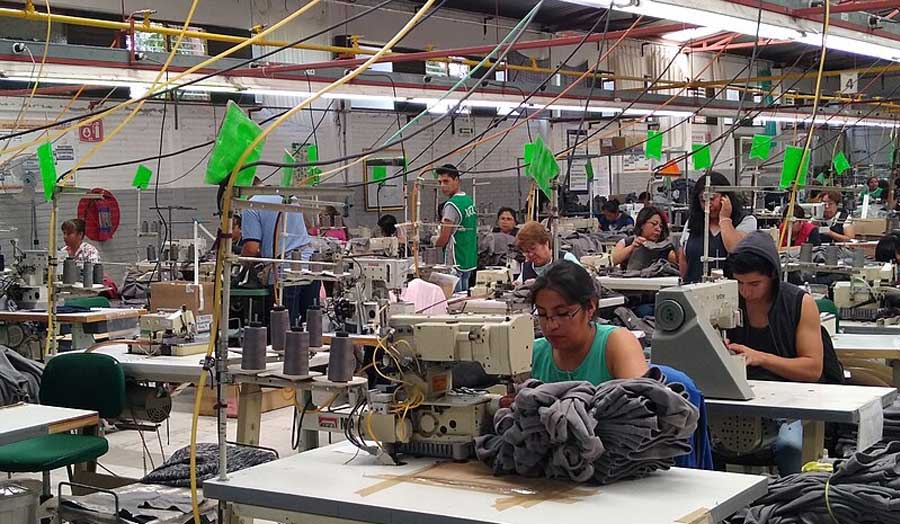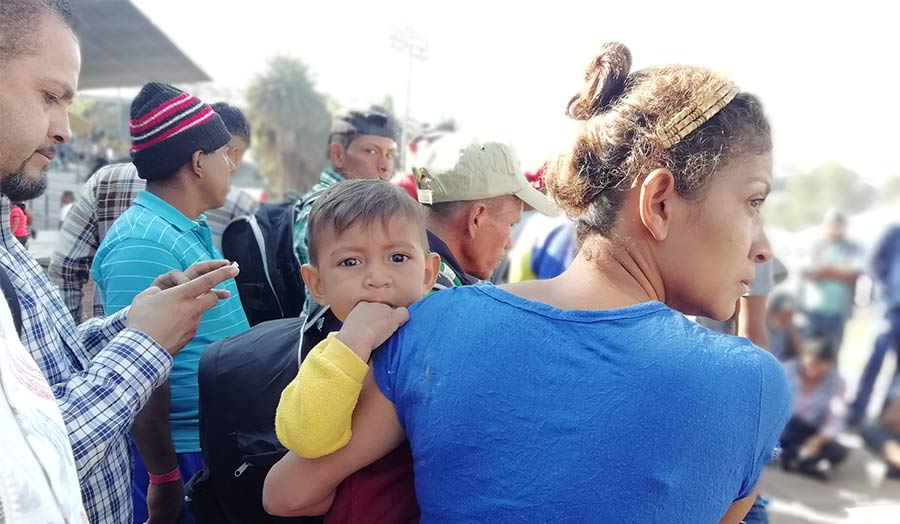This 24-month project (November 2023 – November 2025) is led by Professor María López (Deputy Director, Global Diversities and Inequalities Research Centre, London Metropolitan University) with research assistants from the University of California San Diego, US and the Universidad Autónoma de Baja California.
Through the first-hand accounts of migrant women and practitioners in the field, this research presents the experience of the migration journey as a transformative experience that leads many women to challenge learned gender power structures. In doing so, we challenge the notion of migrant women in transit across Mexico as merely passive individuals and victims of the system.

Photo Credit: Pexels: Takeshi Charly
Project team
More information
The increasing arrival and transit of undocumented migrants has become a pressing social issue in Mexico. In 2019, 6,000 undocumented people crossed the southern Mexican border in just three months. More than half of them are women and girls. Thousands of people, mostly from Haiti and South America and Central America, enter Mexico through non-sanctioned routes, most with the aim of reaching the United States. During their time in Mexico, undocumented migrants experience violence at the hands of state agents, cartels, gangs, and everyday citizens. While both men and women experience violence and abuse, women face specific forms of gendered violence during their journey. The risk of experiencing harassment, rape, unwanted touching, and other forms of violence is such that many take contraceptives as a preventative measure before embarking on their journey. The lack of an institutional gender perspective in the way the Mexican government's management of migration exacerbates the dynamics of violence experienced by undocumented women. This is the case, for example, when the authorities present the violence against women in transit as a problem linked to the increase in criminal activity in the country rather than as a phenomenon that needs to be addressed from a gender perspective. On the contrary, the authorities often downplay the dangers that migrant women face on their journeys, leaving them in a tedious bureaucratic limbo full of stereotypes. Institutional neglect reinforces the idea of migrant women as a homogeneous and passive group of victims.
Through interviews and focus groups with migrant women and shelter workers, and participant observation in shelters in the Mexican cities of Tapachula, Mexico City, Apizaco, Tijuana, and San Diego (US), we aim to challenge the view of migrant women in transit as a homogeneous and passive group and the violence they experience as a secondary issue in the migration crisis. To this end, our research will focus on women's own understandings and narratives of their migration processes, including the violence they experience. In addition, first-hand accounts from women and practitioners will allow us to learn how women in transit cope with critical situations, what motivates them to continue their journey and to resist the hostility of the authorities. In this respect, we understand that the narrative of the journey functions as a tool of resistance, helping women to create spaces for agency and political subjectivity.
This is a multi-method study involving interviews, focus groups and observations with migrant women in transit through Mexico in shelters in Tapachula, Mexico City, Apizaco and Tijuana. We will also interview practitioners and human rights activists in the field and will present our work to relevant policymakers and scholars.
The fieldwork for this project was funded by the Center for US-Mex Studies (UC San Diego) and London Metropolitan University.
This research project will provide essential data for a research report with recommendations, academic papers and a book (under contract). Our findings will be disseminated through a series of events organised with the Center for US-Mex Studies (UC San Diego, US) and the Global Diversities and Inequalities (GDI) Research Centre (London Met).
This project is led by Professor María López, Deputy Director of the Global Diversities and Inequalities Research Centre at London Metropolitan University (UK). She has researched extensively on the dynamics of violence perpetrated by governments, state forces and other powers against vulnerable populations, including migrant women and sexual minorities, in Latin America and other global locations. Her recent publications include her co-authored monograph Gender Violence in Twenty-First-Century Latin American Women’s Writing (Tamesis, 2022). María is also developing an evaluation project to assess the resettlement schemes for Afghan and Syrian refugees in the UK.
Manuel Aguilera-Prieto is a Masters of International Affairs student at the School of Global Policy and Strategy in the University of California San Diego, US. He joined the Center for U.S.-Mexico Studies in the University of California San Diego in 2023, where he is currently a Research Assistant. Before this, Manuel has worked on projects related to transnational conflict and organised crime in Mexico. His research interests include U.S.-Mexico relations, trade, international security and migrant security in the US-Mexico border region.
Brenda Meneses is a PhD candidate in Global Development Studies at the Universidad Autónoma de Baja California (UABC). Her research focuses on forced displacement and migration with an interdisciplinary approach, examining the socio-economic, political, and humanitarian dimensions. She is actively involved in community projects and works closely with civil society organisations on issues related to mental health, violence prevention and the welfare of vulnerable migrant populations.
Dr Alejandra Díaz de León was also part of the team in the first part of the project. Her research focuses on human rights, solidarity and the creation of bonds, trust and cooperation among the people in transit in contexts of violence and insecurity, such as the transit of Central Americans through Mexico to the US.
The team brings together research expertise in qualitative social research techniques, including interviews, walking interviews and focus groups. In addition, the team has extensive experience of working with migrant groups and ethnic minority communities in transit, as well as working with partner organisations in the global hotspots.
We recognise the sensitivities involved in conducting such research and are committed to working closely with our partners to ensure good ethical practice.








